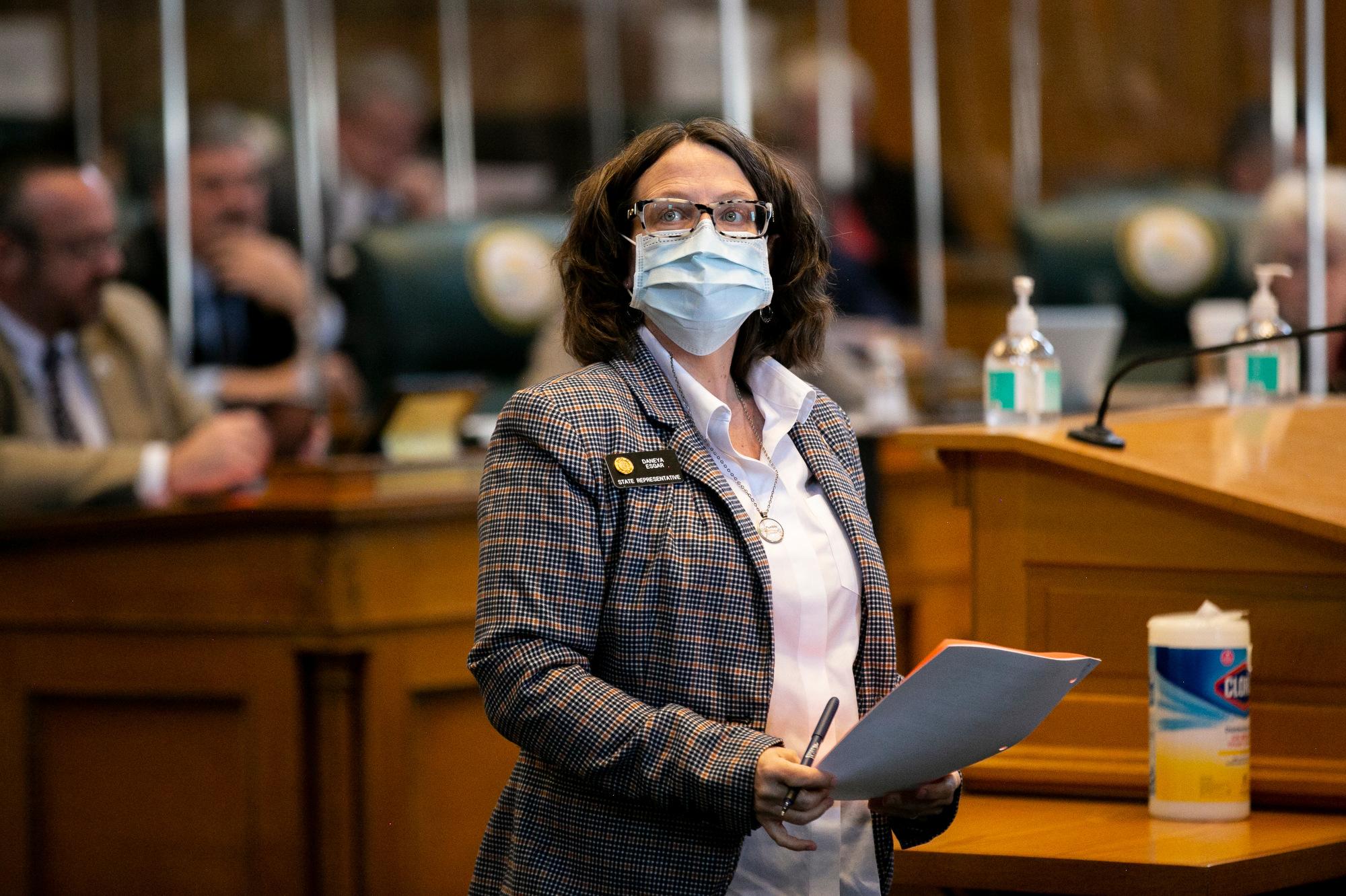
Gov. Jared Polis opposes a plan from the legislature’s Democratic leaders that could allow hundreds of thousands of public employees to join unions and negotiate employment contracts.
Currently, public employees in Colorado are barred from collective bargaining, unless their employer or local voters specifically allow it. While state employees and workers for some cities and school districts have that right, it’s out of reach for people ranging from cleaning staff to emergency workers and others in many of the state’s cities, counties and universities.
State Sen. Steve Fenberg and state Rep. Daneya Esgar, the Democratic majority leaders of the legislature, said last month they wanted to make collective bargaining the rule, not the exception, for public employees. The bill to do that has not yet been introduced, but the idea already faces firm resistance from Polis.
“The Governor has made clear to the bill sponsors and advocates that he will not support the bill in its current form,” wrote Polis spokesperson Conor Cahill in an email. “... The door is open to a much narrower legislation to expand collective bargaining and the governors (sic) hopes the advocates engage local governments more earlier in this process."
Cahill also pointed to earlier actions by the governor, including signing a 2020 law, HB20-1153, that allows state employees to collectively bargain, as well as a recent agreement to pay state-funded healthcare workers a minimum of $15 an hour.
Esgar has argued the bill is a way to ensure public employees are treated fairly — and that they don’t leave their jobs out of frustration — among rising costs of living.
“Colorado simply can't afford to continue to lose these highly skilled essential workers because we're failing to compete in the increasingly tight labor market,” she said last month.
Polis has vetoed only three bills in his first term, but he has used his executive influence to reshape Democratic proposals on climate change and other important concerns for the party.
In response to the governor’s statement, the Democratic leaders on Tuesday said that they would keep working with him and others.
“Thoughtful and productive conversations with the governor and with local government leaders across Colorado are ongoing, and we will continue working together with them to find a way forward and ensure all Colorado’s working families get the pay, benefits, and safe working conditions they deserve,” Fenberg said in a written statement.
In an interview, Fenberg said he would consider granting union rights to a narrower group of workers, or perhaps changing how those rights are granted.
Esgar released a similar statement, saying that “as is common with bills like this, continued dialogue and flexibility from all sides should be expected as the bill moves forward.”
News of his opposition to the proposal drew criticism and eye-rolls from progressives.
“We are disappointed in Governor Polis’ resistance to collective bargaining for all state and local workers,” read a statement from the Political Workers Guild, a group pushing for higher wages for state legislature employees.
The proposal also faces conservative opposition. Advance Colorado Institute, a political nonprofit that does not disclose its donors, said it would spend at least $100,000 on an advertising campaign against supporters of the bill. The group argues the proposal is unconstitutional because it is an unfunded state mandate that infringes on the rights of local governments and schools.
Many details of the statehouse Democrats’ proposal remain unclear, including the question of whether workers would be allowed to strike. The law covering state employees does not allow strikes, but gives more leverage to employees by guaranteeing negotiations.
Currently, only 16 of nearly 300 municipalities in Colorado allow any of their employees to unionize. Firefighters and police officers are among the groups that unionize most often. About 39,000 teachers also are union members — but three-quarters of school districts don't allow unionization.
Republican state Sen. Bob Gardner said that collective bargaining could lead to disruptions of critical services by setting the stage for strikes, even when they’re not legally allowed.
“My concern with any kind of collective bargaining, unionization of public employees, is it opens the doors to strikes — strikes by police, by firefighters, by snowplow drivers, by human services workers,” Gardner said.
He pointed to the 1980s strike by air traffic controllers — an illegal work stoppage that President Ronald Reagan broke by firing thousands of people and which led to the decertification of the union.
“Public employees are certainly free to associate, and do, and approach their government, their employer as an interest group, as do all of the other interest groups in societies,” he said.
The Colorado Municipal League opposes a state mandate for broader public labor organizing rights, saying it’s an issue better left to cities and their voters.
Editor's Note: The headline for this story has been changed to reflect that Polis said he would consider to a more limited policy change.








